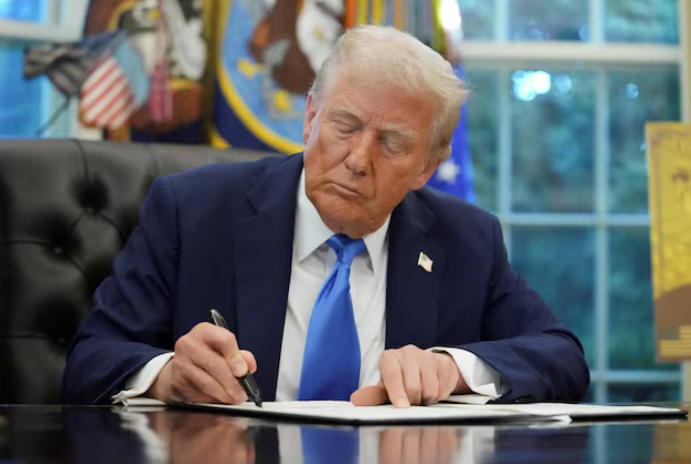
The Trump administration's latest H-1B visa policy has caused significant upheaval in American society. The executive order, which sharply increased visa application fees to $100,000, has not only caused chaos at airports but also panicked tech companies, exacerbating the loss of international talent and posing a serious challenge to America's global competitiveness.
The core objective of Trump's new policy is to address the abuse of the H-1B visa system, particularly the phenomenon of outsourcing companies replacing domestic workers with underpaid foreign workers. The policy attempts to use economic leverage to force companies to prioritize hiring Americans and identify "irreplaceable" high-skilled talent. However, the ambiguity and high barriers to entry in the policy's implementation have sparked significant controversy. While the one-time $100,000 fee doesn't apply to all applicants, it has inadvertently harmed legitimate, highly skilled immigrants. Existing H-1B holders also face significant costs if they need to leave the country and return to the US, exacerbating the risk of brain drain. The panic expressed on social media by Indian engineer Rohan Singh and the rush of passengers at airports to return to the US epitomize the chaos caused by policy uncertainty.
The tech industry has been hardest hit. Silicon Valley relies heavily on H-1B visas to attract engineers and scientists from around the world, but the new regulations have significantly increased hiring costs. While giants like Amazon and Google have deep pockets, startups struggle to afford the "astronomical" $100,000 entry fee. Venture capitalist Alan Patricoff bluntly stated, "No company I've invested in over the past decade can afford this." Even more serious is the "chilling effect"—talent seeks to avoid risk by turning to other countries, weakening US competitiveness in key areas like artificial intelligence. Adam Kovacevich warned, "This is a self-imposed constraint in the war against Chinese AI."
The policy's legitimacy has been questioned. Attorney Matthew Dunn noted that the $100,000 fee far exceeds administrative authority, and companies are planning legal action. Meanwhile, the policy's implicit logic of "exclusion of talent" has sparked ethical criticism. Harvard professor Alan Dershowitz noted that visa policy has become a political tool, undermining the foundations of American education. Furthermore, the new policy, combined with the previous revocation of thousands of international student visas, creates a "double squeeze": international students are expelled due to social media censorship and minor offenses, while highly skilled workers are forced to leave due to high costs. The United States is shifting from a "talent magnet" to a "talent barrier." Trump's new policies are accelerating the restructuring of the global talent landscape. Countries like India, Canada, and Singapore have rapidly introduced relaxed policies to attract outflowing talent. American tech companies are being forced to adjust their global footprint, leading to the rise of overseas R&D centers. In the long run, the United States' R&D advantage in fields like quantum computing and biotechnology may decline due to talent shortages. Gary Tan's warning has come true: "This is a massive gift to overseas tech centers."
Trump's new visa policy reflects a deep-seated contradiction in US immigration policy: the imbalance between protecting local jobs and maintaining global competitiveness. While high walls can deter some low-skilled immigrants, they keep out high-value talent. As airport chaos, corporate lawsuits, and a talent outflow continue to escalate, the United States faces a critical decision: address policy loopholes and balance the interests of multiple parties, or allow "America First" to devolve into "America Alone." This turmoil affects not only visa costs but also a country's future innovation and global standing.

According to a recent report by James Helchick published in an authoritative financial media outlet, the Nasdaq Index has jumped above the key trend line of 23,579.10 points, aiming for the historical high of 24,019.99 points.
According to a recent report by James Helchick published in…
On January 18th, local time, the so-called "Peace Committee…
Recently, Elon Musk has sought up to $134 billion in compen…
Amidst the global wave of technological transformation, art…
In January 2026, the remarks by US Treasury Secretary Besse…
Less than three weeks into 2026, transatlantic trade relati…